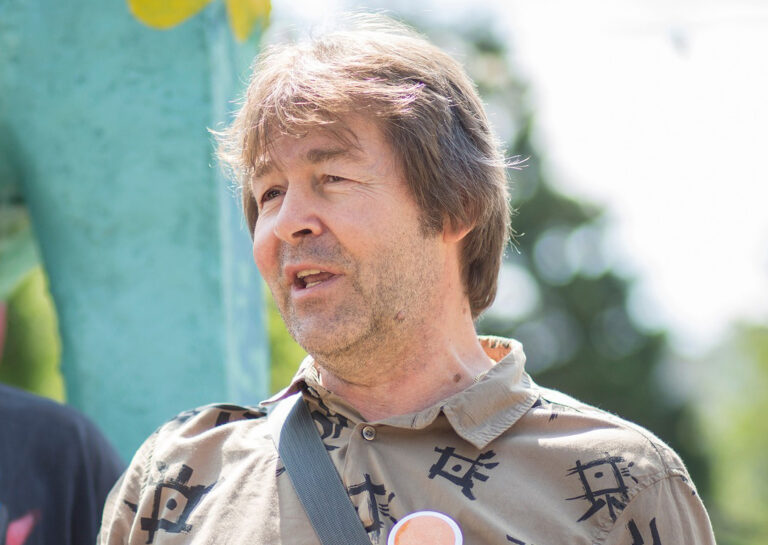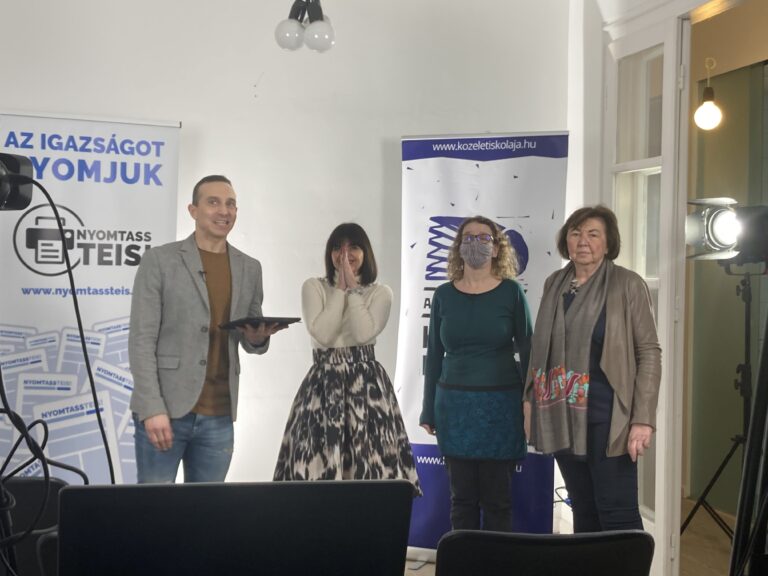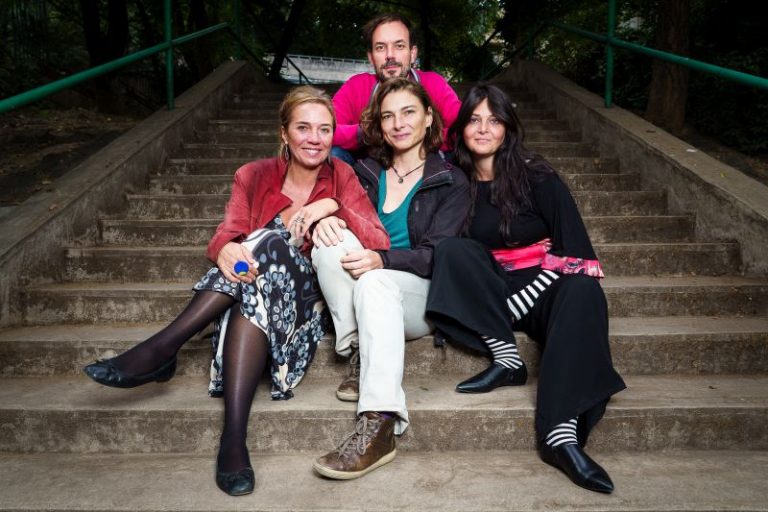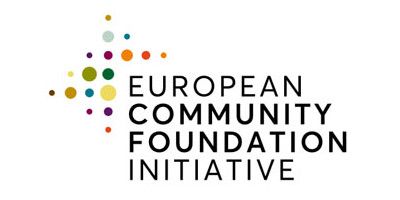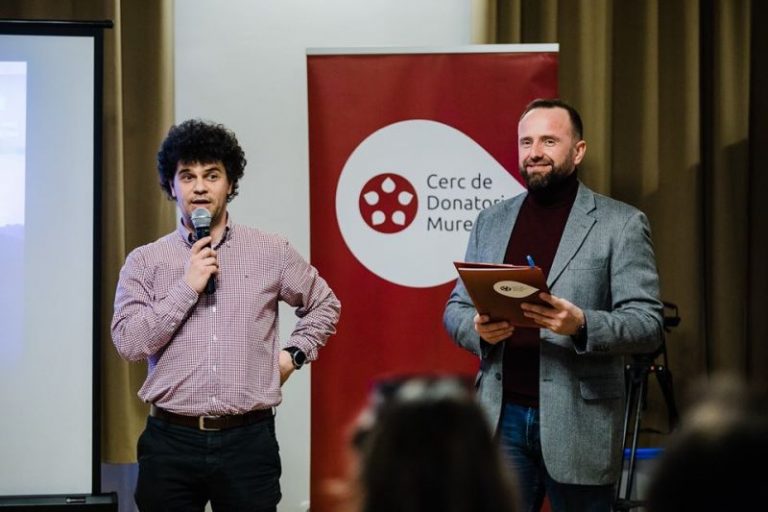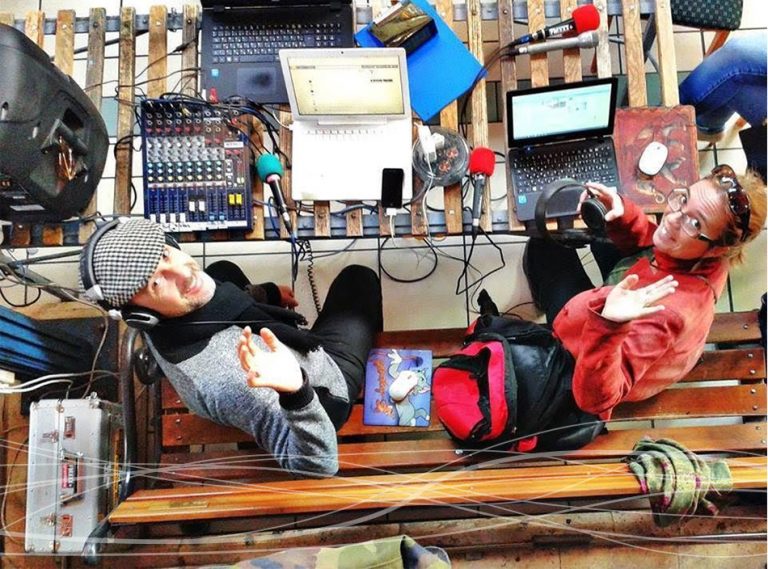“Something should happen in the country, not just in Budapest”
In the shrinking civil world, we talked with Julcsi Dés about the possibilities of action, the power of local initiatives, the great impact of many small steps, and the virtues of the Roots and Wings Foundation. Julcsi became the director of our foundation starting mid-January.
What caught your attention in the Roots and Wings Foundation (RWF) job advertisement?
I had been working at a civil organization since 2015, and last year I felt that a new impetus would be good for everyone. I was sure that I wanted to continue in the nonprofit sector; I couldn’t imagine not working for social causes, not doing something that makes this country a slightly better place.
At my previous workplace, I was a director, and initially, I planned to take on a four-hour project management job and relax. But then I saw the job advertisement and was very impressed by the foundation’s work. I really liked the mission and activities, and I felt that in the shrinking space for social action, this was a job where one could really make an impact, truly expand the small circles of democracy, and increase activity. I felt that I couldn’t just pass this up without trying.
What keywords caught your attention? Had you heard of RWF before?
No. The job advertisement was forwarded to me by Gyuri (György Hámori, head of the Community Foundation Support programme), whom I knew from before. We then talked about the organization, and he spoke very positively about the foundation as a workplace.
The most important keyword and message for me was that something should happen at the country, not just in Budapest. It was very important for me to meet and work with people who want to do something locally, where they live, and thus I could also get closer to smaller and larger cities and communities.
Of course, it constantly comes up in my family too whether we should leave Hungary. We decided not to go, but then we have to do something at home that makes me feel every day that I am changing something, even if it’s small, independent of high politics. This message, this feeling, absolutely grabbed me.
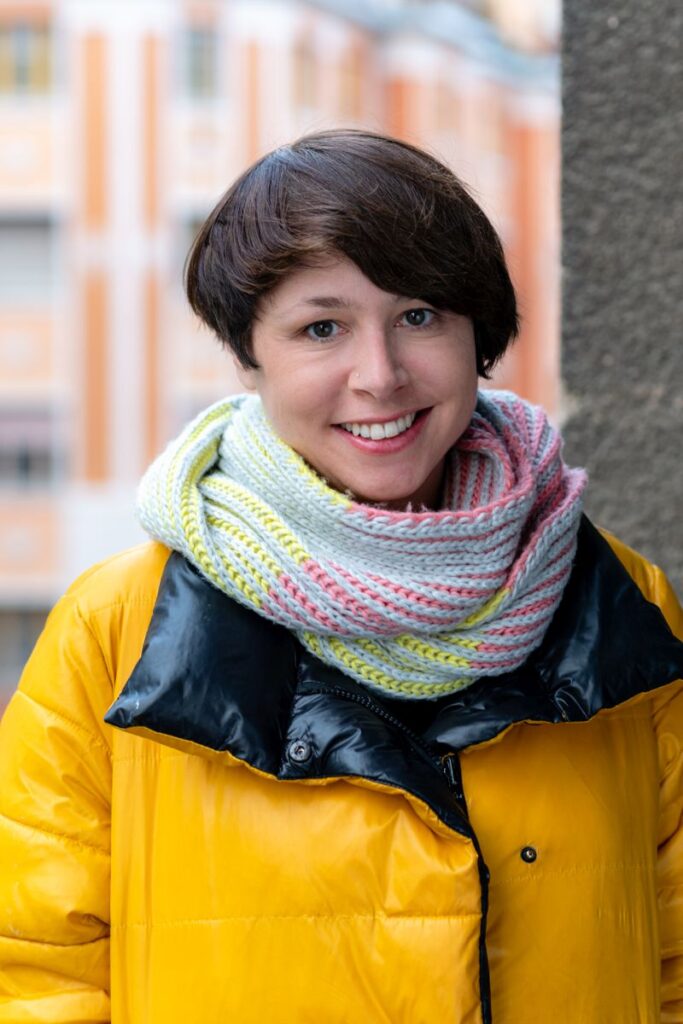
We selected you, you came here, what did you find?
I tell everyone that I received more feedback in the past three months than in the previous ten years combined. It’s incredibly important to me and I really like that we give each other feedback, communicate how we are doing, and I see that everyone pays attention to each other on a human level. The organizational culture is very strong and positive, and the foundation is a safe workplace in the toxic world surrounding us.
Here, I see that even as a director, I will learn a lot: my colleagues understand the various specialties of the foundation much better than I do. As a director, my job will be to coordinate all this and ensure that it’s a good place to work.
If everything is so great here, where do you see the perspective as a leader?
My very important task is to see where we can develop from here, what can be improved – obviously, I can’t answer this question more precisely after only two months of orientation.
I think Tamás (Tamás Scsaurszki, the previous director of the foundation) felt one of his main tasks was to ensure the foundation is a safe workplace where it’s good to work; I obviously want to continue this, as it’s one of the most important tasks of a director.
Would you expand the foundation’s activities?
As far as I can see, we need to strengthen and stabilize the existing programs – perhaps on a larger scale, with more resources. For example, the Community Support Programme has grown so much in recent years that we need to focus on managing this scale. Additionally, the Women’s Program is still in a “test version”; it would be great to elevate it to be on par with the other programs, thus expanding the foundation’s activities.
What is the reason that the Roots and Wings Foundation has grown so much in the shrinking civil world?
Firstly, the commitment and expertise of the staff, and the overall strength of the team. Secondly, our foreign supporters see the importance of what RWF does. In these shrinking spaces, it is especially important for local initiatives to strengthen, which in turn increases people’s sense of cohesion and the feeling that if they are active, something can happen, that it is indeed possible to act even under these circumstances.
If you receive the narrative – whether from an authority or in a private conversation – that you are acting as a mercenary for your foreign funders, what is your response?
I find it very harmful to adopt the government’s narrative and defend ourselves. RWF acts in accordance with its mission and seeks partners and supporters who also find this important. That’s why I don’t want to deal with this narrative.
(Iván Bardócz)
